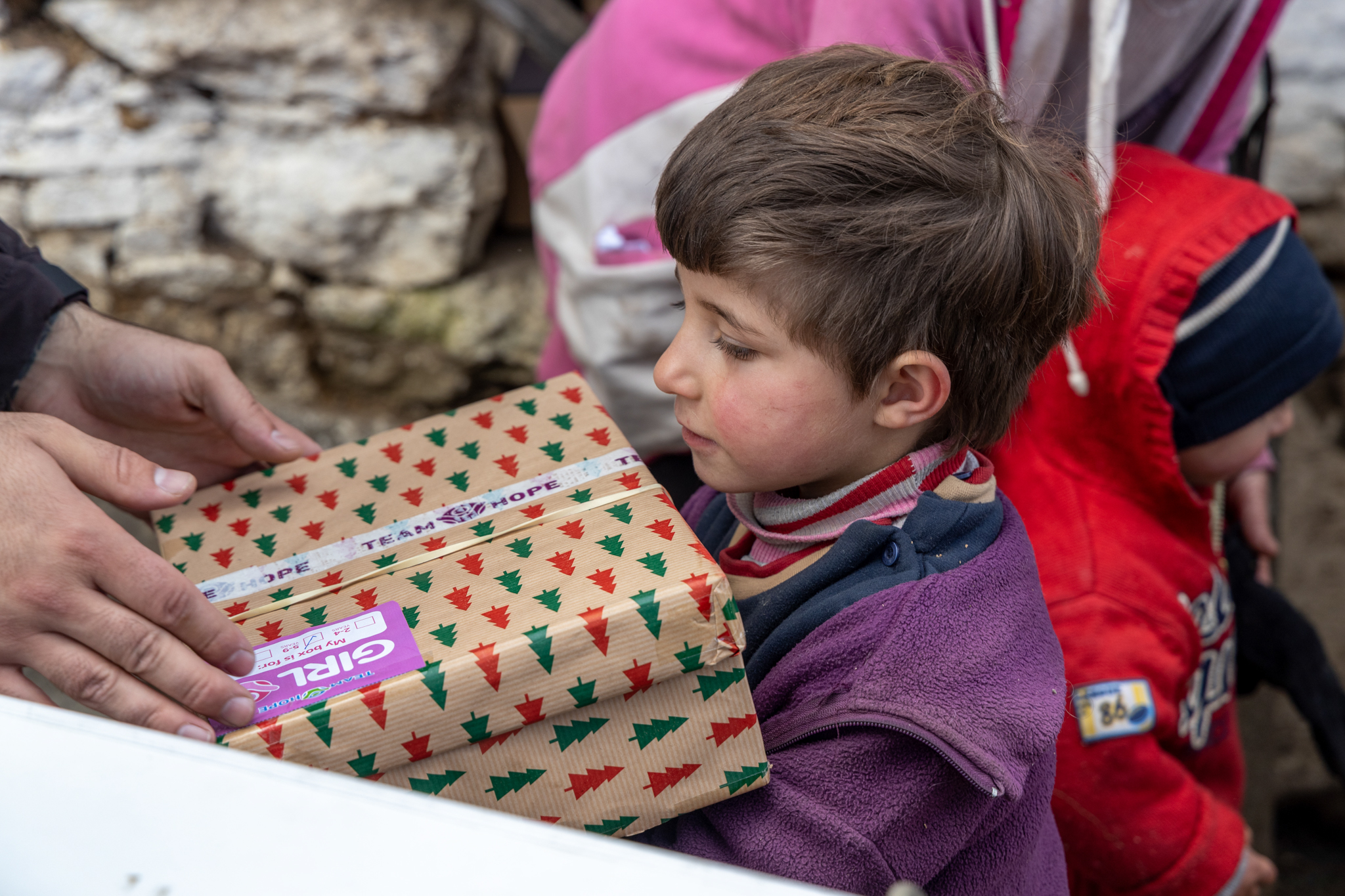 They never received a gift before - a bleak reality for many children, as here in an Albanian village.
They never received a gift before - a bleak reality for many children, as here in an Albanian village.
For most of us, home means security and protection. For some, however, it is the worst place of all. We are talking about domestic violence, a problem that our Albanian social services staff are increasingly confronted with. The requests come from the local municipal office for child and youth protection, which itself has no budget for material family support.
For example, the case of a pregnant mother with two children whose new partner violently took out his mass of problems on his family: unemployed, addicted to alcohol, addicted to gambling, deeply in debt - and violent. Although he contributes nothing to the family’s livelihood, the woman cannot even imagine living without a man in the house – that’s how she‘s raised and what most parts of society expect.
Violence in the family often passes as ‘bad behavior’, not what it is - criminal behavior. Single mothers do not fit into the image of a patriarchal society; pressure is exerted from all sides, often even from their own family. Only in extreme distress did this mother report her partner, supported by outside witnesses, because she had to protect her traumatized children. She herself did not even go to the doctor with her injuries out of shame (and lack of money). Now her partner is in prison. Miraculously, her baby was born (physically) healthy after a few days in hospital, but the mother absolutely must earn money, leaving only the neighbors as babysitters. What will happen next? The sad consequence in most cases: The woman withdraws her complaint, the man is set free and the tragedy starts all over again, usually with even greater violence.
WHAT CAN WE DO TO HELP?
Unfortunately, our options and competences are limited in these cases, but the little we can do makes an immense difference to these families. Food parcels help the mothers to feed their children. Last Christmas the children received a gift parcel for the first time ever, what a joy! A little financial help for urgent expenses, clothes for the children ...
One of the mothers is deeply moved: ‘I can hardly believe that there are people who help. Normally, people just look the other way, even when our financial situation is hopeless.
An employee of the youth welfare office admits honestly: “It is very unfortunate for our society that we still have families today in which, due to traditions, economic circumstances, dysfunctional laws and the lack of a social net, many girls and women have to live together with the perpetrators in one family.”
For the head of our social and medical services (SMI), Nikoleta, one thing is clear: “Every day we see new families struggling with poverty. The distribution of aid goes back to the beginnings of NG in 1991, when the need was so great. It is also the last place where budget cuts can be made. This is not about development, but about sheer survival.”
DOMESTIC VIOLENCE IN ALBANIA
Based on the most developed European countries’ legislation the law on domestic violence was adopted in 2006. This is not so easy to translate into the existing legal system.
Albanian society has historically been dominated by men. Women have long been dictated to accept the role of subordinates. During the communist regime, a deep gap was created between the theory of emancipation of women and her daily reality. In 1991, after the overthrow of the communist regime, Albania went through a period of great changes, often dramatic social, political, and economic disruptions that have created a profound impact on the lives of Albanians. Gender equality is a new principle in Albanian society, which has not yet been embraced by a significant percentage of the population. (Av. Saimir Vishaj, JUS & JUSTICIA issue 2/2022)
Albanian law foresees support programs and protection mechanisms such as state-supported shelters and help finding work that should allow victims of domestic violence to leave their abusers. In reality only a fifth of those who go to the authorities actually receive any financial support. Nation-wide, there are 30 beds for emergency accommodation and 32 for long-term stays, yet thousands of cases are reported every year. (Anila Hoxha, Balkan Insight) Efforts of non-governmental organizations do help, but are nowhere near enough.
Subscribe to our newsletter "Impact"


